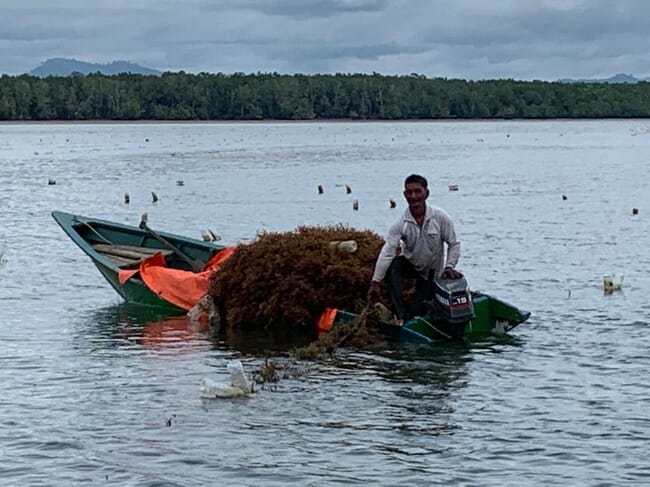
© Rhodomaxx
Oceans 2050, which was co-founded by Alexandra Cousteau and Fritz Neumeyer, was one of eight winners of the Keeling Curve Prize. The non-profit aims to restore the health of the oceans and one of its key projects relates to a study that seeks to “deliver evidence and the methodology to validate and monetize the carbon sequestration impact of ocean farming”.
The prize-winning project, which is led by Oceans 2050's head scientist, Prof Carlos Duarte, aims to quantify carbon sequestration by seaweed in sediment across 19 seaweed farms, in 12 countries, in a bid to provide empirical evidence of their carbon sequestration rates.
They then aim to develop a means by which seaweed farms can issue carbon credits to global buyers, enabling them to benefit financially from the CO2 their farms sequester; creating a new, scalable blue carbon market; and catalysing global expansion of the seaweed farming sector.
The Keeling Curve prize – which awards $25,000 to each of the eight victors – was established to directly fund projects and programmes that aim to reduce human-made greenhouse gas emissions, through means including renewable energy, electric vehicles, zero-carbon innovation, and energy efficiency. It also focuses on organisations, like Oceans 2050, that are developing ways of increasing carbon uptake and drawing down atmospheric carbon levels.
Oceans 2050 was one of two winners in the "capture and utilisation" category.



